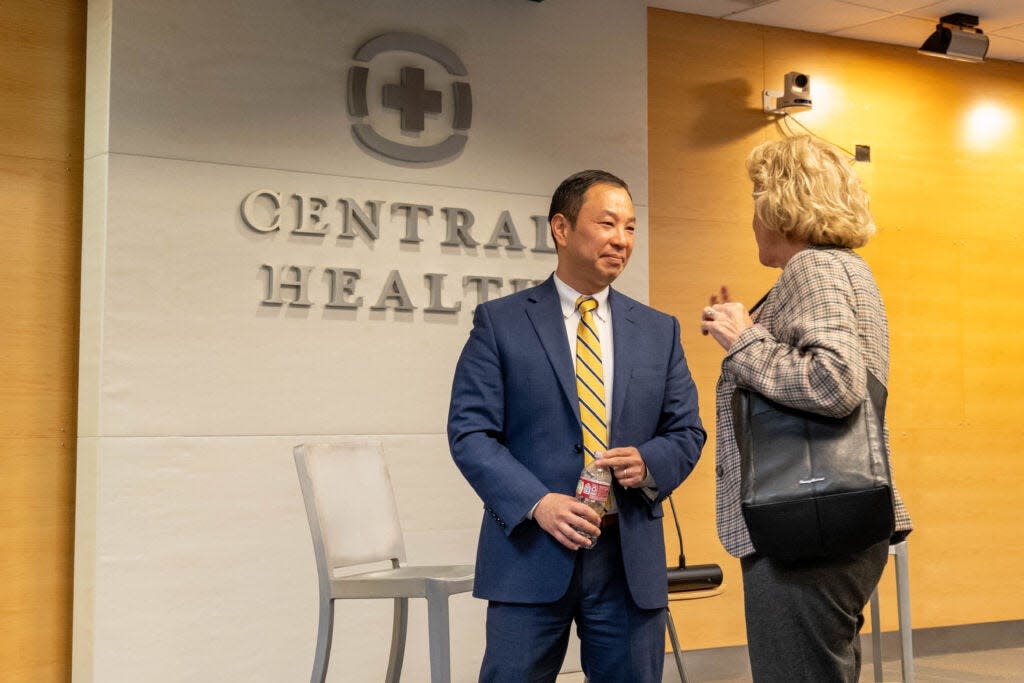Travis County judge decides to not issue final judgment now in case against Central Health

A Travis County state district judge has decided not to issue a final judgment in the 2017 lawsuit against Central Health for funding projects that a group of local taxpayers said were outside Central Health's mission of providing health care for poor people in Travis County. The lawsuit is expected to proceed.
At the heart of the lawsuit were questions around whether Central Health, the hospital district for Austin and Travis County, could legally give $35 million each year to the University of TexasDell Medical School, funding that taxpayers voted on in 2012 as part of establishing a medical school in Austin.
The plaintiffs believe Central Health can only spend money on providing health care to people at or below 200% of the federal poverty level in Travis County. Central Health provides care mainly through its Medical Assistance Program, which is similar to an insurance for people who don't qualify for Medicaid or Medicare and can't afford private insurance. It is funded by a property tax rate of 10.0692 cents per $100 valuation.
The case finally went to court on May 9 after years of depositions and a fact-finding mission by lawyers for three Travis County taxpayers, Rebecca Birch, Richard Franklin III and Esther Govea.
In her ruling Thursday, 201st Civil District Court Judge Amy Clark Meacham did not grant the plaintiff's motion for a summary judgment.
"The case is very much alive," said plaintiffs' attorney Fred Lewis. "It's exactly where it stood before."
He said he is meeting with his clients to discuss whether to appeal the decision to not grant a summary judgment or to go ahead with the trial. "If we try the case, we will have to take more depositions of Central Health’s board, staff and those who originated the Dell Medical School scheme," Lewis said.

Central Health has spent $244,022 since 2017 on hiring an outside counsel for this case.
Meacham dismissed any part of the case that sought retroactive action against Central Health and Dr. Patrick Lee, the new leader of Central Health, who began in January, years after the lawsuit was filed.
Meacham did not grant Central Health's motion to dismiss the case for jurisdictional reasons for future actions. Central Health said in its court filings the lawsuit cannot be pursued because Central Health is a government entity and it is doing what taxpayers voted on.
During the hearing on the case, Meachum asked the plaintiffs: How is your case a lawsuit? Is this just a political argument that you have with Central Health? She also asked why they didn't take their questions about the legality of the funding to the Texas attorney general instead of to a civil court.
Lewis said they were not seeking a judgment on past actions but wanted to stop future spending. Lewis said the plaintiffs would have settled the case a long time ago if Central Health would agree to stop giving Dell Medical School the annual $35 million payment in the future.
Central Health set up the Community Care Collaborative nonprofit with the Ascension Seton hospital system in 2013 to fund the $35 million to Dell Medical School. The agreement for the collaborative to give the $35 million is a 25-year agreement with an automatic renewal of an additional 25 years.
"Judge Amy Clark Meachum’s decision denying the plaintiffs’ motion for summary judgment is a positive outcome for Central Health," Central Health wrote in a statement. "We remain dedicated to our mission: delivering the highest quality, most equitable healthcare to low-income residents of Travis County.”
This lawsuit was filed as Central Health itself began asking Dell Medical School to provide data on how many low-income patients its doctors, medical students and residents serve. Dell Medical School has said it does not keep such data and it would be cost prohibitive to do so.
At the same time, an independent performance audit of Central Health is being done by Mazars USA LLP. That audit was ordered in 2022 by Travis County commissioners, who oversee the Central Health budget. The audit is expected to be completed this June.
This article originally appeared on Austin American-Statesman: Judge decides to not issue final judgment now in Central Health case




